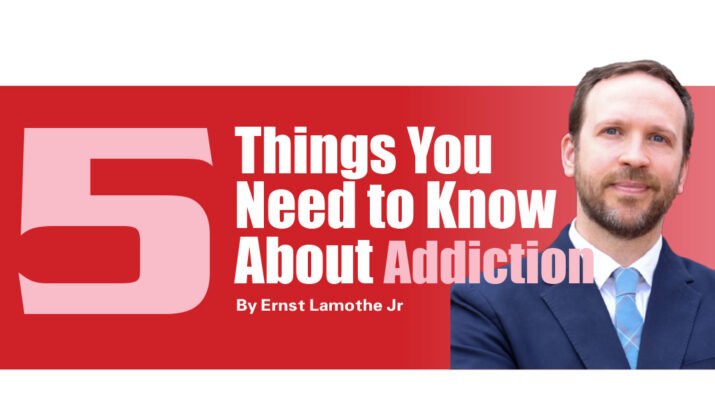By Ernst Lamothe Jr

Addiction is a complex and often misunderstood condition that affects millions worldwide.
Contrary to common misconceptions, addiction is not simply a lack of willpower or moral failing, but rather a chronic disease that involves compulsive substance use or behavior despite harmful consequences.
Prevention is an important part of this conversation that is not often discussed, according to Christopher Baszto, executive director of Farnham Family Services in Oswego. “The earlier supports are put in place, the more impactful they can be,” he said.
1. Myths About Addiction
Counselors often have to negate misconceptions such as addiction is a choice and only weak-willed people become addicted. The reality is that addiction alters the brain’s chemistry and affects judgment, making it a disease that requires treatment. Experts would also like to dispel the viewpoint that addiction involves a failure of the will and that tough love remains the only way to address the issue.
Substance abuse disorders have complex and individualized causes resulting in considerable changes in the brain and is a legitimate medical condition that responds well to treatment and support, according to Baszto.
“Medication, peer support, family involvement, counseling, mutual support groups and life-long recovery support among others have proven to be effective for those in recovery. The path in recovery is non linear, like many other medical concerns and reoccurrences and remissions are part of the process, not moral or will power failures,” he added.
2. Different forms of addiction
Addiction manifests in various forms, including substance addiction, which are drugs — prescription and illegal — alcohol and nicotine. In addition, there are behavioral addictions such as gambling, internet use and shopping.
“Common forms encountered by the population include opioid use disorder, alcohol use disorder, cannabis use disorder and stimulant use disorder,” said Baszto. “Compassion, acceptance and support, meeting someone where they are in their recovery journey and helping them connect with support and treatment are often the best approaches.”
3. First steps first
If you suspect vulnerability to addiction, opening steps include educating yourself to understand risk factors and warning signs, seeking support such as reaching out to a trusted friend, family member or counselor and considering support groups.
“There is good evidence to support that all of us are vulnerable to addictive dynamics in our lives, dependent primarily on a combination of bio-psycho-social risk and protective factors. If someone notices an increase in addictive dynamics in their life, a good first step would be reaching out to a therapist to explore further,” said Baszto. “Seeking a walk-in assessment to determine if diagnostic criteria are met would be helpful. There are many mutual support groups that do not involve clinical intervention, but provide a community forum to discuss and explore, where an individual can hear from others in similar situations around specifically identified issues.”
4. Denial
Denial often stems from stigma, fear of judgment or misunderstanding the severity of the problem.
Accepting an addiction can be overwhelming and admitting a need for help can be difficult.
“As in many other aspects of life, most of us have difficulty seeing elements of our own experience that cause us harm, especially when we do not feel equipped to meaningfully address it,” he added. “It has been often shared by individuals in recovery that what has typically been called denial often shares a connection with the judgment or anticipated negative response from others or one’s own lack of resources to meaningfully address an issue. By providing a supportive, accepting environment rich with support, medication and harm-reduction approaches, oftentimes what previously needed to be denied or unspoken in a less accepting environment, can be freely explored and addressed.”
5. Family history and additional insight
Family history plays a significant role in addiction risk, indicating a genetic predisposition. Environmental factors and upbringing also contribute to vulnerability.
“Addictive dynamics and their manifestations have complex causal pathways. That said, there is good evidence to suggest that, as with other conditions, our genetic make-up may leave us with a higher or lower genetic predisposition,” said Baszto. “The interplay between our environment and the activity of genes and their expression is an area receiving significant scientific attention.”
Addiction treatment should be holistic, addressing physical, psychological and social aspects, according to Baszto. Early intervention and support are crucial in managing addiction effectively, he said. Understanding and empathy are vital in combating stigma and supporting individuals on their path to recovery.
Addiction is a multifaceted issue that requires nuanced understanding and compassionate support. Dispelling myths, recognizing trends and acknowledging personal vulnerability are crucial steps in addressing this widespread and impactful condition, according to Baszto.

